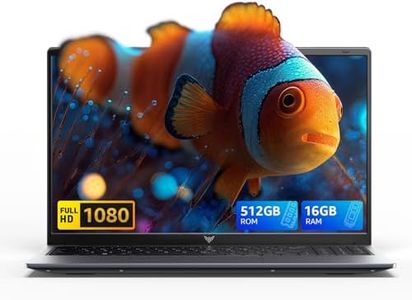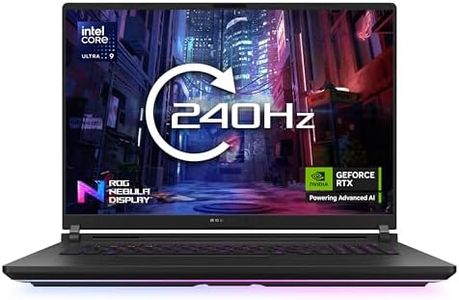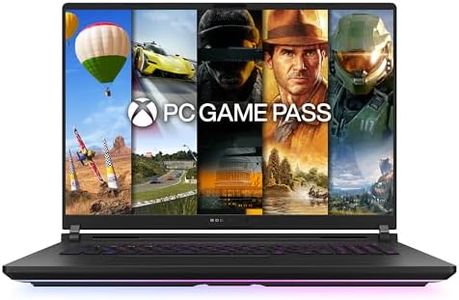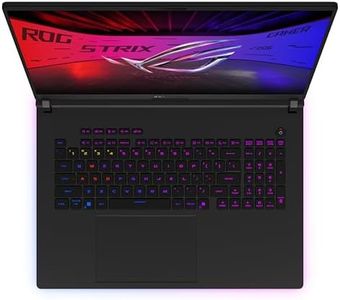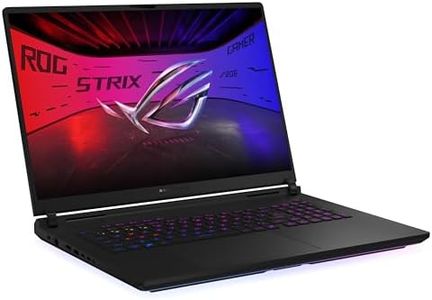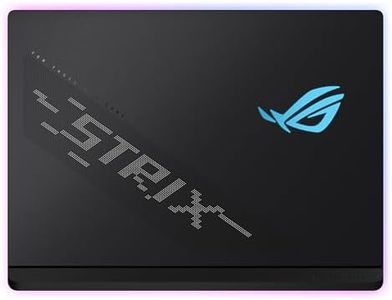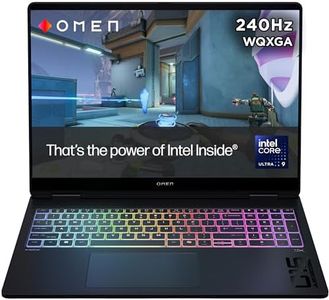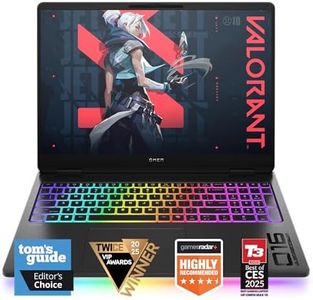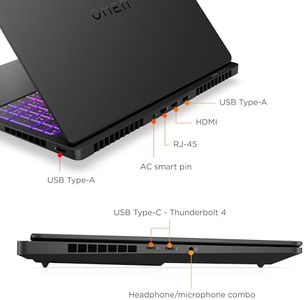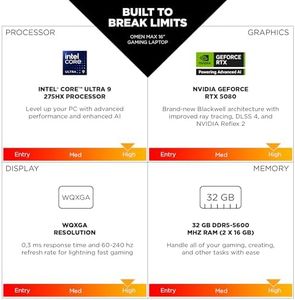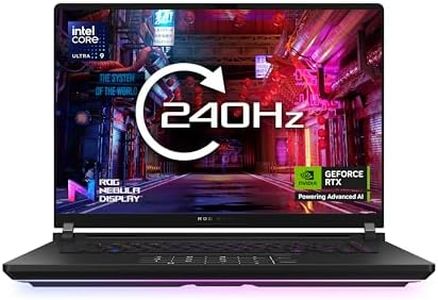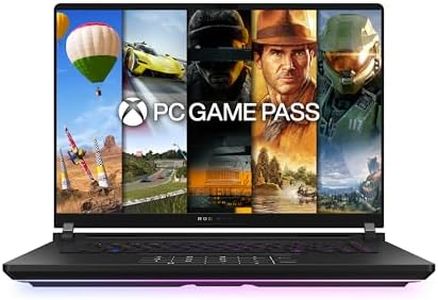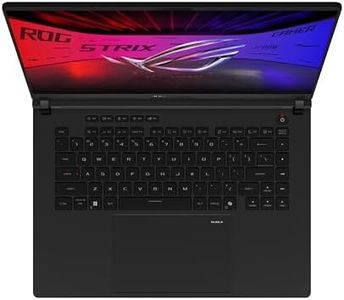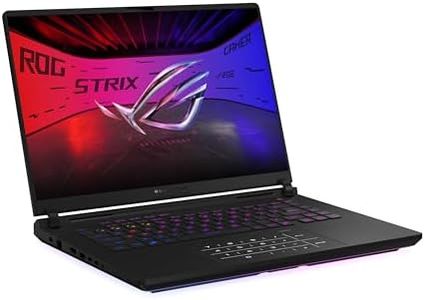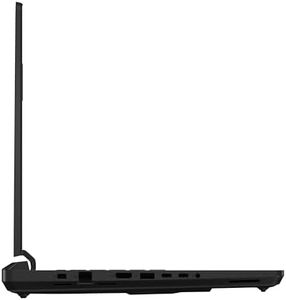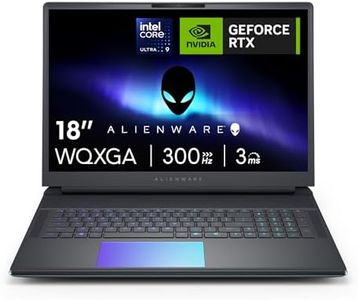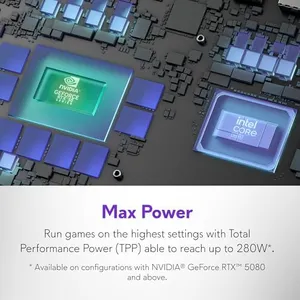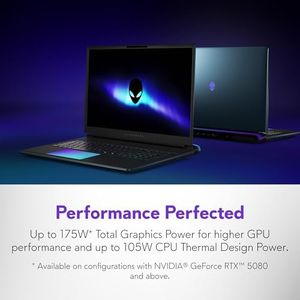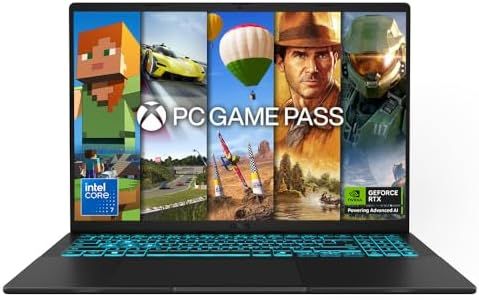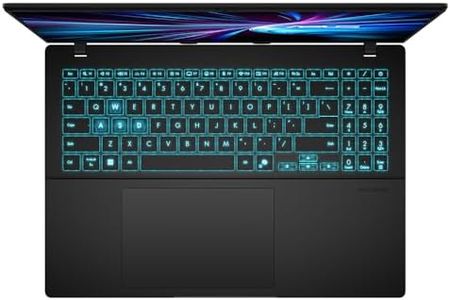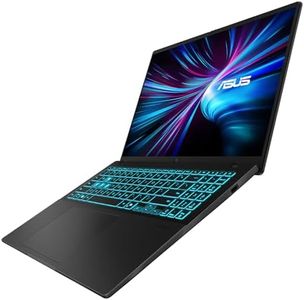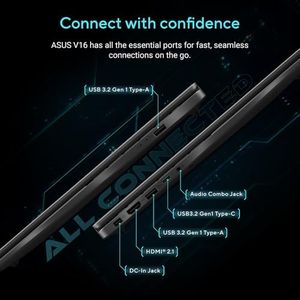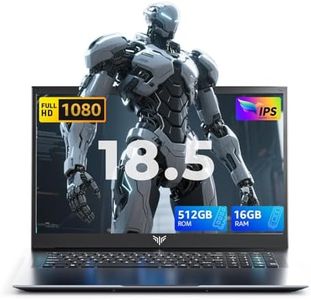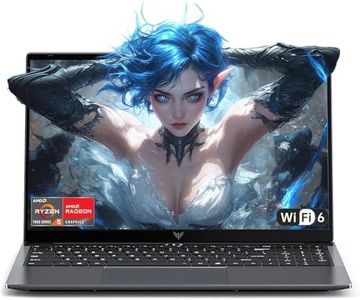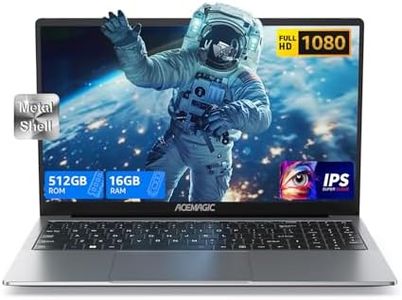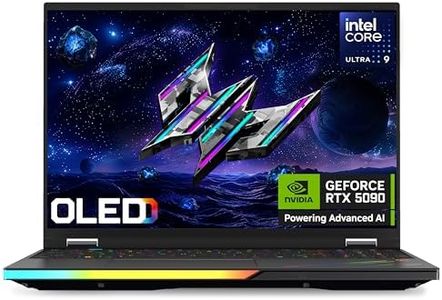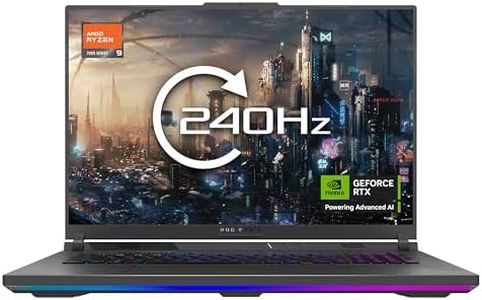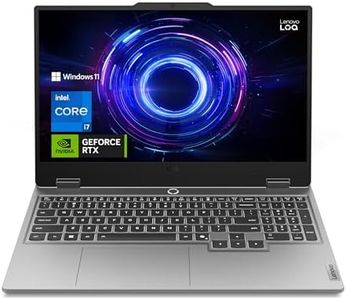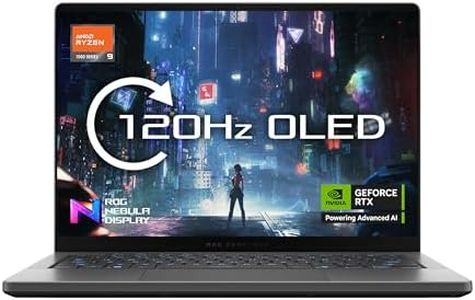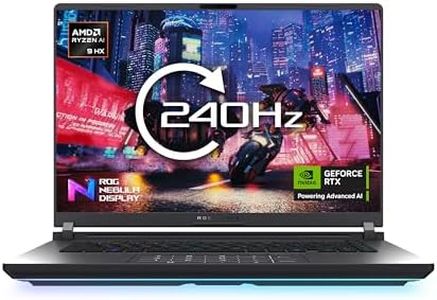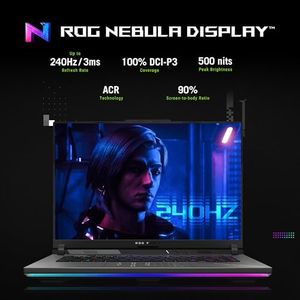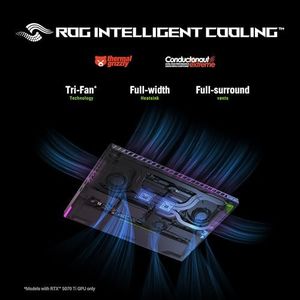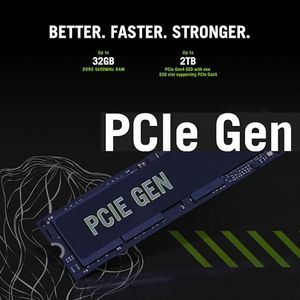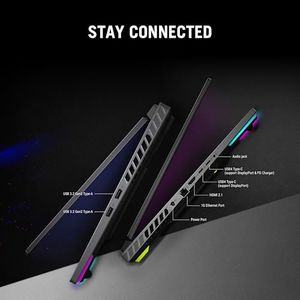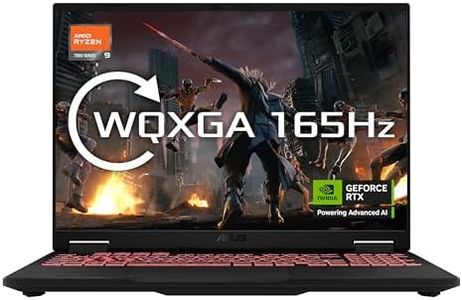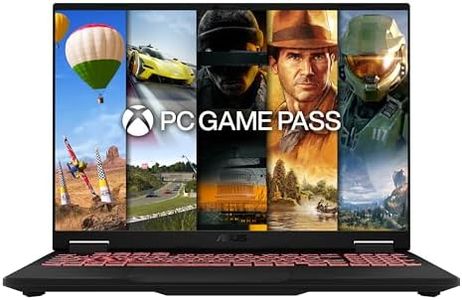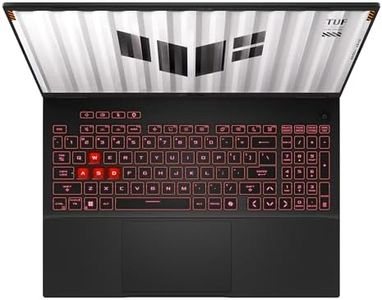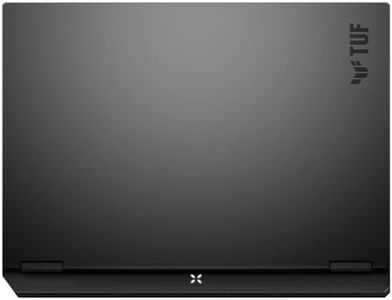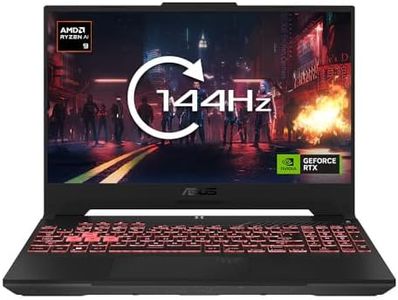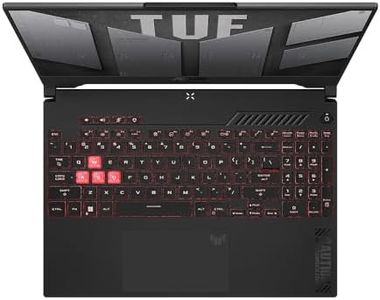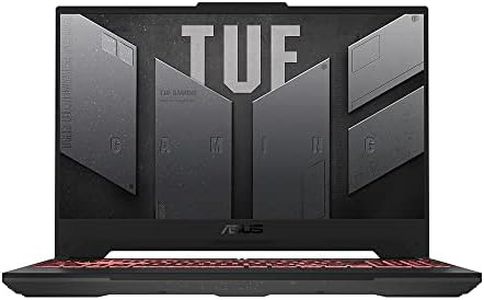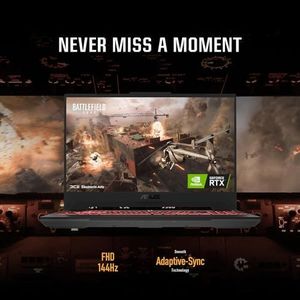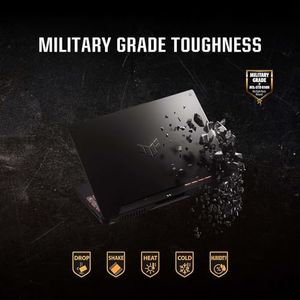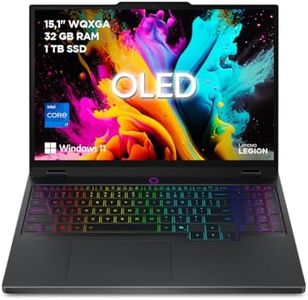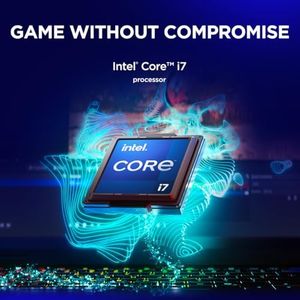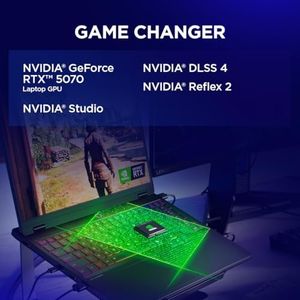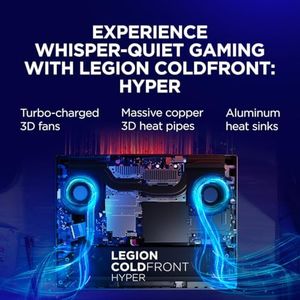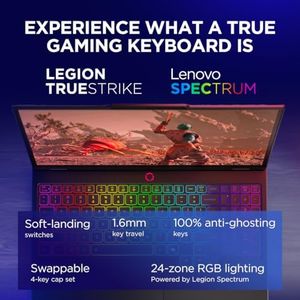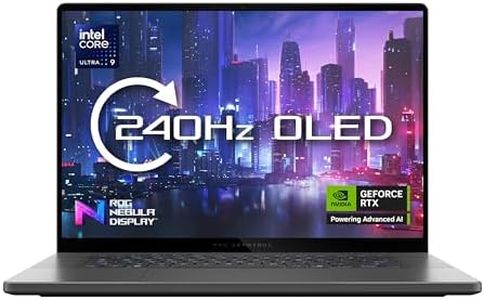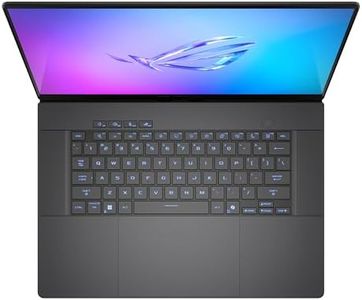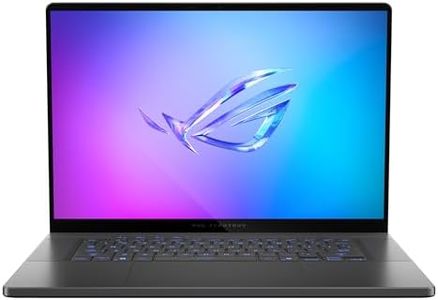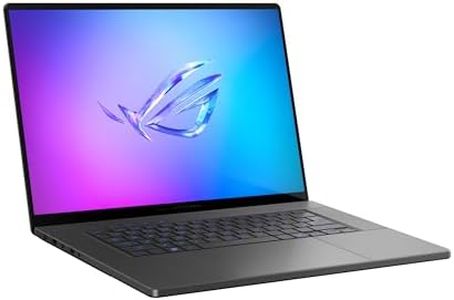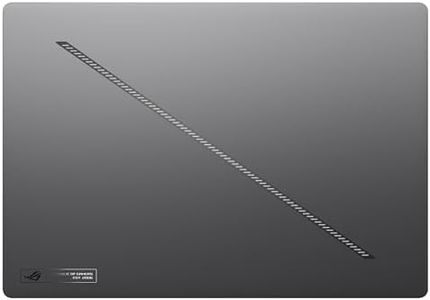We Use CookiesWe use cookies to enhance the security, performance,
functionality and for analytical and promotional activities. By continuing to browse this site you
are agreeing to our privacy policy
10 Best Gaming Laptops
From leading brands and best sellers available on the web.By clicking on a link to a third party's website, log data is shared with that third party.
Top 10 Best Gaming Laptops 2026 in the UK
#1
Winner
ASUS ROG Strix SCAR 18 G835LX Gaming Laptop | 18.0" WQXGA 240Hz Screen | Intel Core Ultra 9 275HX | NVIDIA GeForce RTX 5090 Laptop GPU | 64GB RAM | 2TB SSD | UK Layout Backlit Keyboard | Windows 11
ASUS ROG Strix SCAR 18 G835LX Gaming Laptop | 18.0" WQXGA 240Hz Screen | Intel Core Ultra 9 275HX | NVIDIA GeForce RTX 5090 Laptop GPU | 64GB RAM | 2TB SSD | UK Layout Backlit Keyboard | Windows 11
Processor (CPU): Intel Core Ultra 9 275HX
Graphics Card (GPU): NVIDIA GeForce RTX 5090
RAM: 64GB DDR5
Storage: 2TB PCIe SSD
Display: 18-inch WQXGA 240Hz
Cooling System: Max-Q technology
Keyboard and Build Quality: UK backlit keyboard; solid build
Chosen by 1178 this week
HP OMEN MAX 16" Gaming Laptop | Intel® Core™ Ultra 9-275HX Processor | 32GB RAM | 1TB SSD | NVIDIA GeForce RTX 5080 | 244 Hz VRR 2.5K WQXGA Anti-glare Display | Windows 11 | Fast charge | 16-ah0800sa
HP OMEN MAX 16" Gaming Laptop | Intel® Core™ Ultra 9-275HX Processor | 32GB RAM | 1TB SSD | NVIDIA GeForce RTX 5080 | 244 Hz VRR 2.5K WQXGA Anti-glare Display | Windows 11 | Fast charge | 16-ah0800sa
Processor (CPU): Intel Core Ultra 9, 2.7 GHz, 24 cores
Graphics Card (GPU): NVIDIA GeForce RTX 5080, 16 GB
RAM: 32 GB DDR5
Storage: 1 TB SSD
Display: 16", 2560x1600, 3ms, G-SYNC
Battery Life: Fast charge 50% in 30 mins
Cooling System: Self-cleaning fans, vapor chamber, liquid metal
Keyboard and Build Quality: Full-size backlit keyboard with numpad
ASUS ROG Strix SCAR 16 G635LW Gaming Laptop | 16.0" WQXGA 240Hz Screen | Intel Core Ultra 9 275HX | NVIDIA GeForce RTX 5080 Laptop GPU | 64GB RAM | 2TB SSD | UK Layout Backlit Keyboard | Windows 11
ASUS ROG Strix SCAR 16 G635LW Gaming Laptop | 16.0" WQXGA 240Hz Screen | Intel Core Ultra 9 275HX | NVIDIA GeForce RTX 5080 Laptop GPU | 64GB RAM | 2TB SSD | UK Layout Backlit Keyboard | Windows 11
Processor (CPU): Intel Core Ultra 9 275HX
Graphics Card (GPU): NVIDIA GeForce RTX 5080 16GB GDDR7
RAM: 64GB DDR5
Storage: 2TB PCIe SSD
Display: 16-inch WQXGA 2560x1600 240Hz
Keyboard and Build Quality: Backlit UK keyboard; sturdy build
Alienware 18 Area-51 18" Gaming Laptop WQXGA 300Hz G-Sync Display, Intel Core Ultra 9 275HX Series 2, NVIDIA GeForce RTX 5080, 32GB RAM, 2TB SSD, Windows 11 Home, Cryo-tech, AlienFX RGB Qwerty
Alienware 18 Area-51 18" Gaming Laptop WQXGA 300Hz G-Sync Display, Intel Core Ultra 9 275HX Series 2, NVIDIA GeForce RTX 5080, 32GB RAM, 2TB SSD, Windows 11 Home, Cryo-tech, AlienFX RGB Qwerty
Processor (CPU): Intel Core Ultra 9, 24 cores, 5.4GHz
Graphics Card (GPU): NVIDIA GeForce RTX 5080, 16GB
RAM: 32GB DDR5
Storage: 2TB SSD
Display: 18-inch WQXGA, 2560x1600, 300Hz
Cooling System: Alienware Cryo-tech, fans, heat pipes
Keyboard and Build Quality: Customizable RGB lighting, comfortable design
ASUS V16 V3607VM Gaming Laptop | 16.0" WUXGA 144Hz Screen | Intel Core 7 240H | NVIDIA GeForce RTX 5060 | 16GB RAM | 1TB PCIe SSD | Backlit Keyboard | Windows 11 | 3 Month Xbox Game Pass
ASUS V16 V3607VM Gaming Laptop | 16.0" WUXGA 144Hz Screen | Intel Core 7 240H | NVIDIA GeForce RTX 5060 | 16GB RAM | 1TB PCIe SSD | Backlit Keyboard | Windows 11 | 3 Month Xbox Game Pass
Processor (CPU): Intel Core i7 240H, 10 cores
Graphics Card (GPU): NVIDIA RTX 5060, 8 GB GDDR7
RAM: 16 GB DDR5
Storage: 1 TB PCIe 4.0 SSD
Display: 16-inch WUXGA, 144Hz
Keyboard and Build Quality: Backlit keyboard, ultra-portable design
ASUS TUF A15 FA507VR Gaming Laptop | 15.6" Full HD 144Hz Screen |AMD Ryzen 7-7435H | NVIDIA GeForce RTX 4060 (140W TGP) | 16GB RAM | 1TB PCIe SSD | Windows 11
ASUS TUF A15 FA507VR Gaming Laptop | 15.6" Full HD 144Hz Screen |AMD Ryzen 7-7435H | NVIDIA GeForce RTX 4060 (140W TGP) | 16GB RAM | 1TB PCIe SSD | Windows 11
Processor (CPU): Ryzen 7, 8-core, 3.1 GHz
Graphics Card (GPU): NVIDIA RTX 4060, 8 GB GDDR6
RAM: 16 GB DDR5
Storage: 1 TB PCIe SSD
Display: 15.6", 1920x1080, 144Hz
Battery Life: 5.5 Hours
Keyboard and Build Quality: Backlit UK keyboard, sturdy build
Lenovo Legion 5 Gaming Laptop - Display OLED WQXGA 15" 165Hz, Nvidia GeForce RTX 5070 8GB, Intel Core i7-13650HX, RAM 32GB, SSD 1T, Windows 11 Home, RGB Keyboard - Eclipse Black
Lenovo Legion 5 Gaming Laptop - Display OLED WQXGA 15" 165Hz, Nvidia GeForce RTX 5070 8GB, Intel Core i7-13650HX, RAM 32GB, SSD 1T, Windows 11 Home, RGB Keyboard - Eclipse Black
Processor (CPU): Intel Core i7-13650HX, 3.6 GHz
Graphics Card (GPU): NVIDIA GeForce RTX 5070, 8 GB
RAM: 32 GB DDR5
Storage: 1 TB SSD
Display: 15.1-inch OLED, 2560x1600, 165Hz
Cooling System: Legion Coldfront, turbo fans, heatpipes
Keyboard and Build Quality: RGB backlit keyboard
#10
ASUS ROG Zephryus G16 GU605CR 16.0" 2.5K 240Hz OLED Gaming Laptop (Intel Core Ultra 9 285H, NVIDIA GeForce RTX 5070Ti 12GB, 32GB RAM, 2TB PCIe SSD, 3 Month Xbox Gamepass, Windows 11)
ASUS ROG Zephryus G16 GU605CR 16.0" 2.5K 240Hz OLED Gaming Laptop (Intel Core Ultra 9 285H, NVIDIA GeForce RTX 5070Ti 12GB, 32GB RAM, 2TB PCIe SSD, 3 Month Xbox Gamepass, Windows 11)
Processor (CPU): Intel Core i9 Ultra 9 285H, 16 cores
Graphics Card (GPU): NVIDIA GeForce RTX 5070Ti, 12GB GDDR6
RAM: 32GB LPDDR5X
Storage: 2TB PCIe 4.0 SSD
Display: 16-inch OLED, 2.5K, 240Hz, 16:10
Cooling System: Max-Q tech, NVIDIA Ada Lovelace
Keyboard and Build Quality: Good keyboard, RGB, solid build
Buying Guide for the Best Gaming Laptops
Choosing the right gaming laptop can be a daunting task, but with the right approach, you can find a model that fits your needs perfectly. The key is to understand the specifications that matter most for gaming and how they align with your gaming habits and preferences. By focusing on the right specs, you can ensure that your gaming laptop delivers the performance, graphics, and overall experience you desire.Processor (CPU)The processor, or CPU, is the brain of your gaming laptop. It handles all the instructions from your games and other applications. A powerful CPU ensures smooth gameplay and quick load times. CPUs are typically divided into entry-level, mid-range, and high-end. Entry-level CPUs are suitable for casual gaming and less demanding games. Mid-range CPUs offer a good balance for most gamers, handling popular titles with ease. High-end CPUs are for serious gamers who play the latest AAA games at high settings. Choose a CPU based on the types of games you play and how demanding they are.
Graphics Card (GPU)The graphics card, or GPU, is crucial for rendering the visuals in your games. A powerful GPU ensures high frame rates and better graphics quality. GPUs are categorized into entry-level, mid-range, and high-end. Entry-level GPUs can handle older or less demanding games. Mid-range GPUs are suitable for most modern games at medium to high settings. High-end GPUs are for gamers who want to play the latest games at the highest settings with features like ray tracing. Consider the games you play and the graphics quality you desire when choosing a GPU.
RAMRAM, or Random Access Memory, is where your laptop stores data that is actively being used or processed. More RAM allows for better multitasking and smoother performance in games. Gaming laptops typically come with 8GB, 16GB, or 32GB of RAM. 8GB is the minimum for gaming, suitable for less demanding games. 16GB is the sweet spot for most gamers, providing enough memory for modern games and multitasking. 32GB is for heavy multitaskers and those who use their laptop for more than just gaming, such as video editing. Choose the amount of RAM based on your gaming and multitasking needs.
StorageStorage determines how much space you have for games, applications, and files. There are two main types: HDD (Hard Disk Drive) and SSD (Solid State Drive). SSDs are faster and more reliable but more expensive, while HDDs offer more storage for less money. Many gaming laptops come with a combination of both. An SSD is recommended for your operating system and games for faster load times, while an HDD can be used for additional storage. Consider how many games and files you need to store and choose a storage configuration that fits your needs.
DisplayThe display is where you see your games, so it's important for an immersive experience. Key factors include resolution, refresh rate, and size. Resolution affects the clarity of the image, with Full HD (1080p) being standard, while 1440p and 4K offer higher clarity. Refresh rate, measured in Hz, affects how smooth the motion appears, with 60Hz being standard, and 120Hz or 144Hz providing smoother gameplay. Size is a personal preference, with 15-inch and 17-inch being common for gaming laptops. Choose a display based on your preference for clarity, smoothness, and portability.
Battery LifeBattery life determines how long you can game on the go without needing to plug in. Gaming laptops are generally power-hungry, so battery life can vary significantly. High-performance components like powerful CPUs and GPUs consume more power. If you plan to game mostly while plugged in, battery life may be less of a concern. However, if you need portability and plan to game away from a power source, look for a laptop with longer battery life. Keep in mind that gaming on battery power may reduce performance to conserve energy.
Cooling SystemThe cooling system is essential for maintaining performance and preventing overheating during long gaming sessions. A good cooling system includes multiple fans and heat pipes to dissipate heat effectively. Poor cooling can lead to thermal throttling, where the CPU and GPU reduce performance to avoid overheating. Look for laptops with advanced cooling solutions if you plan to game for extended periods. Consider the cooling system's effectiveness and noise level, as some systems can be quite loud. A well-cooled laptop ensures consistent performance and longevity.
Keyboard and Build QualityThe keyboard and build quality affect your overall gaming experience and the laptop's durability. A good gaming keyboard should have responsive keys, customizable RGB lighting, and features like anti-ghosting and N-key rollover for accurate key presses. Build quality refers to the materials and construction of the laptop, impacting its durability and feel. Metal chassis are more durable than plastic ones. Consider how comfortable the keyboard feels for long gaming sessions and the overall sturdiness of the laptop. A well-built laptop with a good keyboard enhances your gaming experience.
